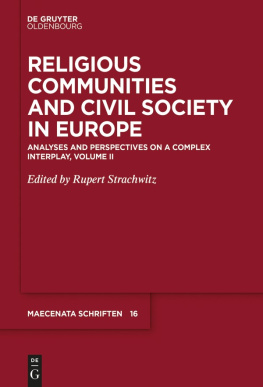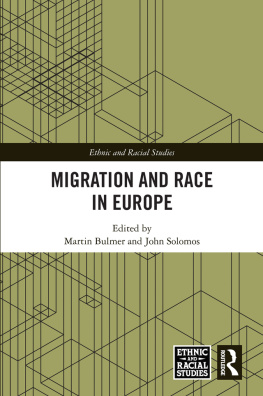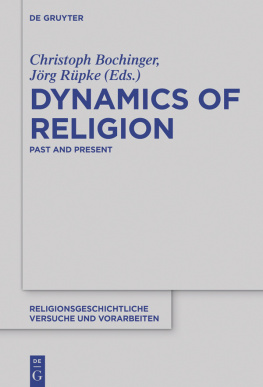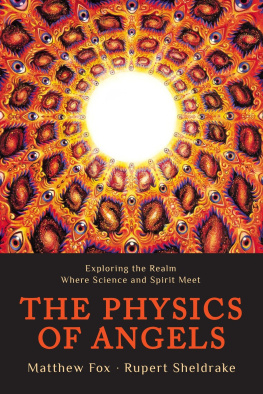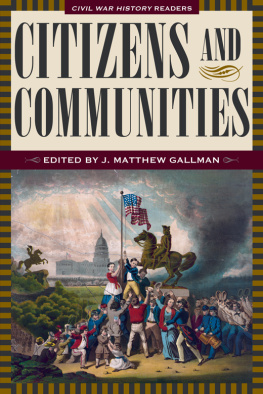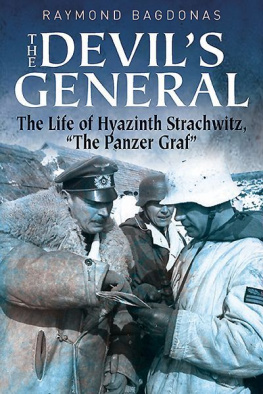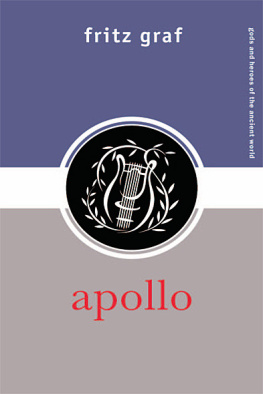Rupert Graf Strachwitz (Ed.)
Religious Communities and Civil Society in Europe
Maecenata Schriften
Edited by
Dr. phil. Rupert Graf Strachwitz,
Dr. sc. Eckhard Priller and
Christian Schreier
Volume 16
ISBN 978-3-11-067299-2
e-ISBN (PDF) 978-3-11-067308-1
e-ISBN (EPUB) 978-3-11-067314-2
ISSN 1866-122X
Library of Congress Control Number: 2020935638
Bibliographic information published by the Deutsche Nationalbibliothek
The Deutsche Nationalbibliothek lists this publication in the Deutsche Nationalbibliografie; detailed bibliographic data are available on the Internet at http://dnb.dnb.de.
2020 Walter de Gruyter GmbH, Berlin/Boston
www.degruyter.com
Acknowledgements
This publication and the preceding 1st volume (2019) are the outcome of a research project that began in 2015 after a lengthy period of preparation and ended in 2018 with a conference held in cooperation with and on the premises of the Pontifical Gregorian University, the Gregoriana, in Rome. In vol. 1 of this publication we announced that there would be 3 volumes in all. We have since seen that we can accommodate all contributions in 2 volumes. Therefore, there will not be a 3rd volume.
The project itself and the two volumes of findings owe much to many! Invaluable guidance and assistance was received from colleagues in various European countries who consented to act as associates: Prof. Dr. Rocco D'Ambrosio, Prof. Dr. Paul Dekker, Dr. Anna Domaradzka, Prof. Dr. Johan von Essen, and Prof. Dr. Vasilios Makrides. Also, valuable help was enjoyed from two fellows of the Maecenata Institute, Prof. Dr. Frank Adloff and Prof. Dr. Eva Maria Hinterhuber, and from the Director of the Maecenata Foundations MENA Study Centre, Prof. Dr. Udo Steinbach.
Particular thanks are due to all contributors to both volumes of findings. The chapters add particular viewpoints which will, I hope, enable readers to gain a fuller picture of a complex and varied process. Also, a large number of key personalities, both academics and practitioners in the field, were ready to be interviewed, to join discussions, to participate in conferences, and to offer their expertise in many other ways. To all of them, a sincere and heart-felt thank-you!
The whole endeavour could never have been accomplished without my colleagues at the Maecenata Institute, namely Sarah Albrecht, who for most of the time coordinated the project, Philipp Kreutzer, who took over and helped organize the final conference, and Malte Schrader, who oversaw the final stages and the publication.
Finally, the Maecenata Institute would not have been able to undertake such a venture without generous outside funding, which is gratefully acknowledged. Special mention is due to Dr. Joerg Schulte-Altedorneburg, a staunch supporter of the idea as it emerged and developed.
To provide food for thought on the issue of the relationship between religious communities and civil society in Europe will hopefully contribute to a debate which I have felt is necessary as part of the discussions both within civil society and civil society research, and within the Christian Churches and other religious communities about their role in modern society. Presenting a wide a range of by no means necessarily homogenous cases and arguments, will, I hope, fulfil this purpose, and I would be more than happy if this project were to spark off a wider and more detailed debate. Most emphatically, these publications are not intended to close, but rather to open the discussion.
Needless to say, the blame for any omittances and shortcomings is due to me and possibly in some cases to the authors only.
Berlin, in October 2019
Rupert Graf Strachwitz
Jacquineau Azetsop
Introduction
Many theories have been developed to account for the modus operandi of civil society just as there are many approaches to religion as a social phenomenon. The civil society involvement in the larger social body can be understood from normative, analytic or public sphere perspectives. However, intellectual honesty may challenge us to mention the existence of many other theories on civil society.
Scott Paeth, a professor of religious studies at De Paul University, argues that civil society is made up of many types of institutions with which individuals freely associate. Far from being a common association of civil society, religion is one of the free institutions existing in society, operating autonomously as an intermediate body, a normal association within society or even between state and civil society. Even though, the function of religion is social, its role goes beyond society to include a vision of human existence that transcends a normal human endeavour. This trans-social vision calls for an ideal way of being human and provides moral and metaphysical categories for building a better society.
David Herbert has shown that a critical inquiry into the relationship between religion and civil society across the world in the last three decades of the twentieth century shows striking results revealing that theses about secularism have been factually challenged by the return of religion in the public sphere. It is undoubtedly obvious that religions have re-entered the public space as influential discursive powers and symbolic systems apparently beyond the control of either traditional religious institutions or states. The emancipation of religion from well-known traditional institutions and its re-entry into the public sphere tend to be a mixed blessing since it carries both dangers and possible benefits for democracy and peoples wellbeing.
This ambivalent outcome can be partly explained by the fact that religion plays an important role, though complex, in a life-giving civil society by providing a space for moral debate about competing visions of society and public values. Furthermore, religious institutions and communities bring many assets to civil society that mobilize people around important social policy issues. In addition, the degrees to which religious associations participate in delivering social services in communities reflect the moral standards of society, as well as their level of awareness of social responsibility. There are numerous examples of religious groups providing social relief to people in need. These philanthropic actions are initiated by a variety of religious groups that often have the moral authority to question ideologies and public values which undermine human dignity and endanger social cohesion.
What is it that religion actually does for, to and with society that needs to be highlighted? Based on religions involvement in civil society over the past three or four decades, David Herbert, a Kingston University sociologist, assigns two important roles to religion. First, religion provides society with education and/or welfare functions in places where the state is unable or unwilling to provide these services. Second, religious communities or institutions often speak up or act out against political oppression, questioning the fairness of states political institutions and challenging the social forces when they do not work for the common good. Recently, in some parts of Africa, religious leaders and language have been used as an instrument of resistance in the face of dictators. However, religion can have a dual effect: it can either bring about social division or social integration.

